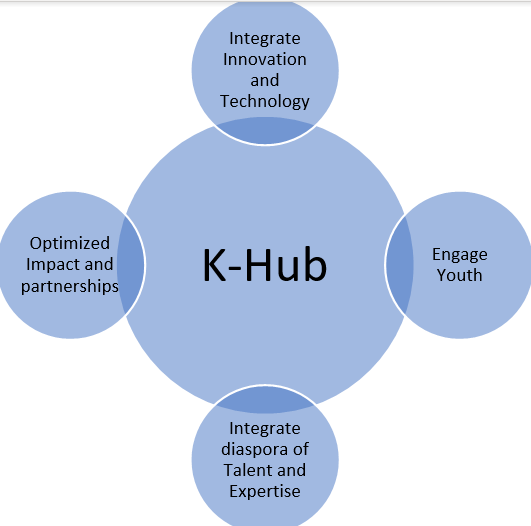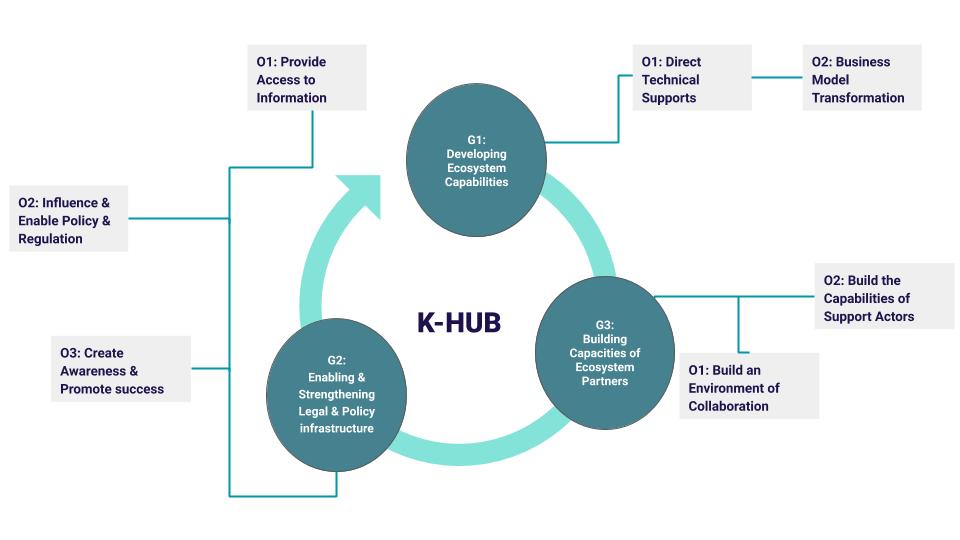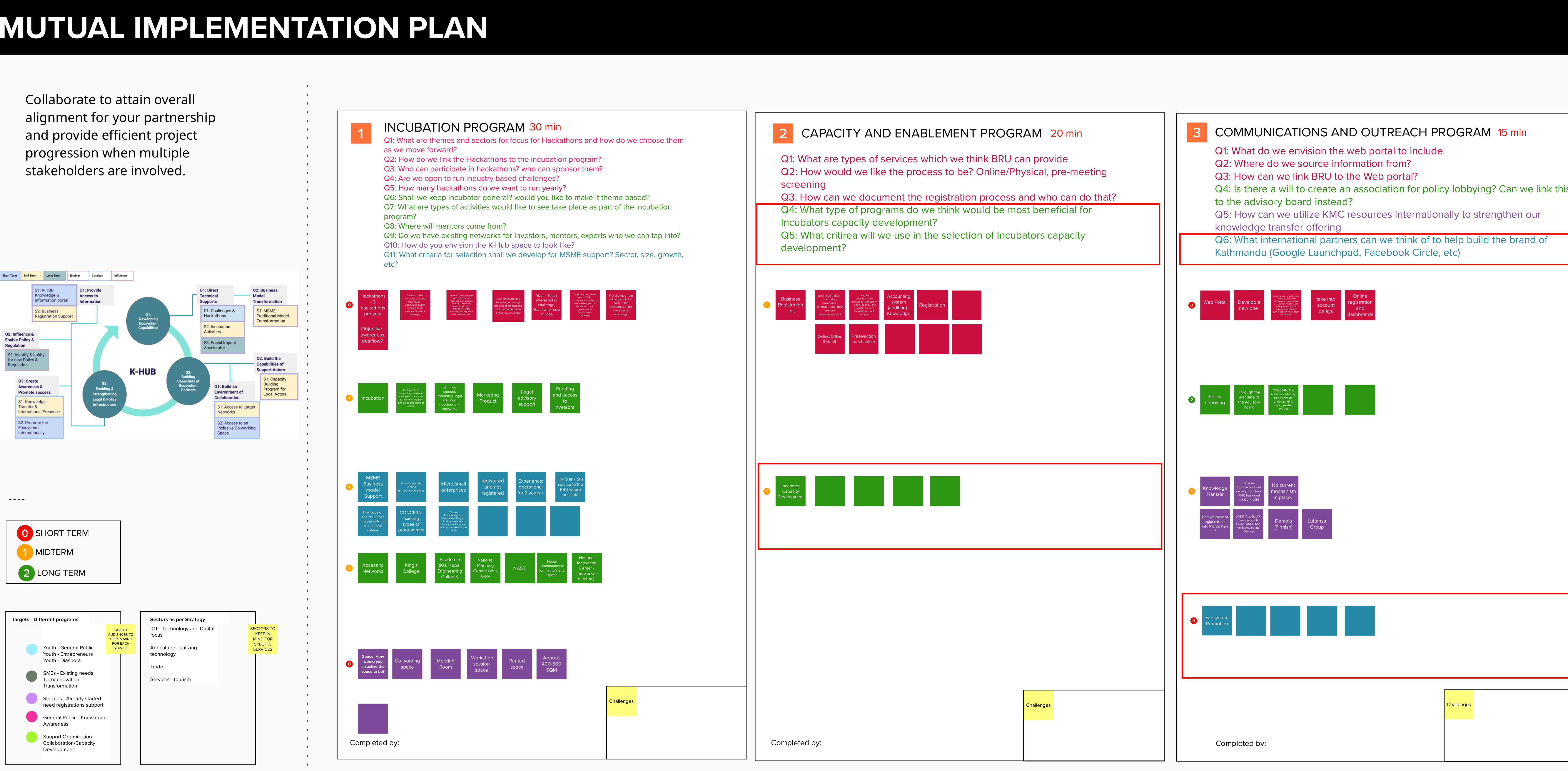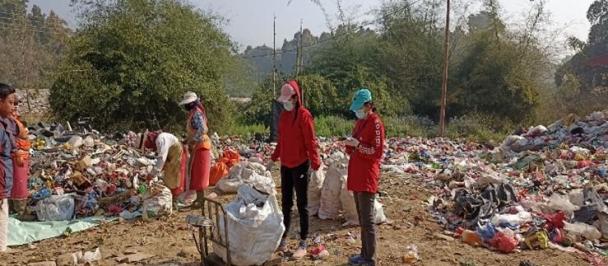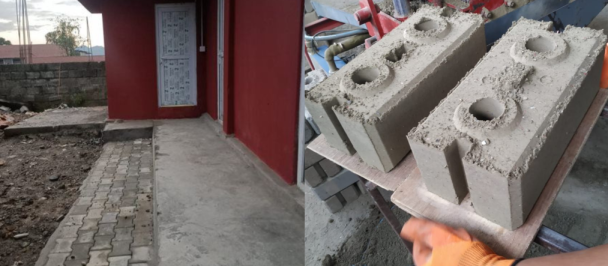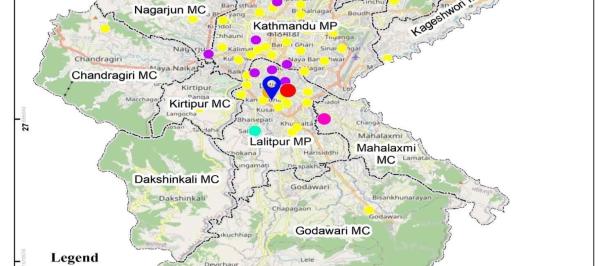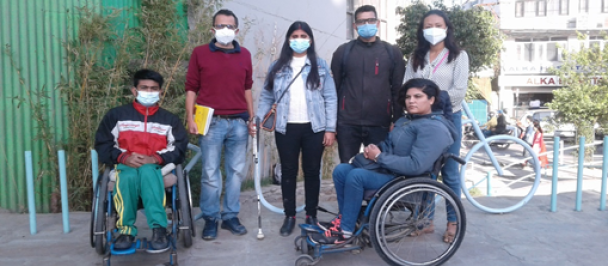With the long-term vision of supporting the local government on generating employment and enhancing entrepreneurial ecosystem in Kathmandu Metropolitan City (KMC), UNDP Accelerator Lab Nepal has partnered with KMC to explore the possibilities of creating a physical space that guides start-ups and innovative minds. The City Planning Commission (CPC) under the KMC and UNDP Accelerator Lab has temporarily named this initiative as “Kathmandu Business Hub (K-Hub)”.
Why this initiative NOW?
According to the Nepal labour Survey (2017-18) conducted by National Planning Commission (NPC), there are approximately 20.7 million people who are of working age (15-64). Out of this 908,000 were unemployed; with the unemployment rate of 11.4%. Post COVID, this situation has further worsened with exponential increase in unemployment due to loss of jobs and businesses; particularly in the sectors like tourism, trade, transport, entertainment and recreation. According to Nepal Rastriya Bank (2020), the central bank of Nepal, 61% industries were closed during the series of lockdowns announced by the Government of Nepal. Similarly, three in five employees have lost their jobs in the micro and small businesses with a fall of 95% in average monthly revenue (UNDP, 2020). In order to motivate the young minds who are eager to contribute to entrepreneurship development in this critical situation, the initiative of K-hub is more relevant and compelling against the backdrop of widespread youth unemployment, job loss, and lack of incentives for new enterprises to grow and innovate.
Area of Hope
In the past few years, Kathmandu has witnessed an increased trend of youths' interest in being part of the entrepreneurial ecosystem. This has resulted in a gradual increase in the number of start-ups, incubation centres and support enterprises. However, this enthusiasm has been halted and slowed down due to the recent COVID crisis. In the midst of this, KMC/ CPC together with Accelerator Lab Nepal have been delving on the concept of K-Hub as a ray of hope. The main goal of Khub is to support highly potential ideas and promote innovative start-ups on driving economic growth and job creation through public-private partnership, especially for young people.
Role of K-Hub
This is an immense opportunity for the local government to test and prove the genuine concerns of the government in supporting the private sector. K-hub can play a crucial role in connecting the government, multinational corporations, national corporations, financial institutions, development partners and academia among others to support existing and potential entrepreneurs collectively by creating linkages and programs of mutual benefit.
It can further be illustrated in the diagram below where K-Hub will be an entity with potential for innovation and technology integration in existing sectors, engaging more youth to instigate change, creating opportunities to integrate diaspora of talent and expertise; and provide a platform to encourage entrepreneurial growth for optimized impact and partnerships to respond to local social needs on economic empowerment. This will further be elaborated in the implementation plan, to be collectively designed in collaboration with KMC, CPC, and above-mentioned potential stakeholders/ shareholders.
What will the K-Hub do?
KMC will play a strategic role in the implementation K-Hub; particularly as an influencer, as a catalyst and as an enabler. As stressed by Mr. Ek Narayan Aryal, Chief Administrative Officer of KMC, “K-Hub is envisioned as an entity aiming to create a conducive environment for youth who want to apply their skills to resolve urban issues and at the same time start their own business that is sustainable, scalable and has potential to create jobs in the market”. In this process, Accelerator Lab will provide technical assistance in mapping, exploring and shaping this idea through strategic guidance and foresight.
Through the collective intelligence exercise with the KMC/ CPC, government institutions, development partners, private sectors, academia; and series of focus group discussions with emerging start-ups and incubators, we generalized that the K-Hub can be framed under three strategic goals (G), each having its own set of objectives (O) as highlighted in the diagram below. The intended focus will be on developing ecosystem capabilities, strengthening legal and policy infrastructures and building capacities of ecosystem partners.
To meet each objective, K-hub will provide a series of services to offer the young entrepreneurs through a partnership modality. Few of these services will include direct technical assistance through incubation facilities, business creation and registration services, access to legal and regulatory information services, knowledge transfer and promotional opportunities, co-working space services, linking start-ups to investors, and a role in coordinating efforts towards the growth of the entrepreneurship ecosystem in Kathmandu by leveraging relationships with existing ecosystem builders.
What next?
In order to make this work, K-ub aims to follow a multi-stakeholder partnership and a public-private partnership modality. With this strategic direction, we are in the process of preparing a detailed implementation plan in close consultation with KMC/ CPC. A snapshot of the brainstorming session that Accelerator Lab conducted with KMC/ CPC in the Mural Board to initiate the planning process is shown in the picture below.
UNDP Accelerator Lab in Nepal is working closely with development partners, the private sectors and grassroot innovators as a “vehicle” to test innovative solutions around unplanned urbanization and unemployment. It is on a quest to invest technical expertise on these two frontier issues in order to map, and explore a portfolio of experiments to foresee more possibilities.

 Locations
Locations


